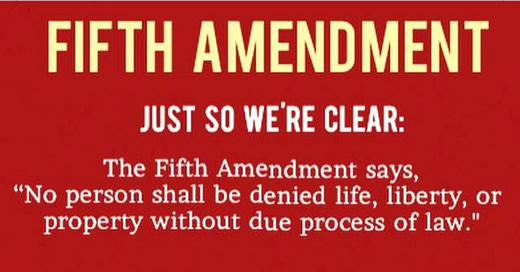Thursday, April 17th, 2025
Today, this meme popped into my social media feed, and I did what I always do. I considered it, thought about it, questioned it, and then researched it!
Listen to the video to hear my thoughts…and then, below is the question I posed to ChatGPT and the information it gleaned from the internet.
MY QUESTION TO CHATGPT:
When non-American citizens land at an airport and go to customs or border control, they are standing in the United States of America, but they have not yet been allowed through immigration or customs or border control. At that moment when they are standing in the United States of America, but have not yet been admitted into the country by border control, do they obtain automatically all rights afforded to US citizens in the constitution of the United States of America?
ANSWER:
Great question—and it gets into some nuanced legal and constitutional territory. The short answer is:
No, non-citizens who arrive at a U.S. airport and have not yet been admitted into the country do not automatically obtain all the rights afforded to U.S. citizens under the Constitution.
However, the longer and more accurate answer is this:
1. They Are Physically in the U.S., But Legally Not "Entered"
In legal terms, these individuals are considered to be at the border, even if they are physically standing in an airport terminal on U.S. soil. This is known as the “entry fiction” doctrine. It treats them as though they are still outside the country for certain legal purposes—even though they are physically here.
2. They Are Still “Persons” Under the Constitution
Despite the legal fiction, they are still “persons” under the Constitution. That means some constitutional protections apply, but not all, and not always in the same way they apply to citizens or lawful residents.
For example:
They do have protection against torture and physical abuse (Fifth and Fourteenth Amendments—due process, basic rights to bodily integrity).
They do not have full due process rights, especially when it comes to exclusion (not being admitted into the country).
They do not have a right to enter the U.S. Entry is considered a privilege, not a right—even for visa holders.
They don’t have full First Amendment protections, especially not in terms of political participation or expression that challenges immigration law or their inadmissibility.
3. Supreme Court Has Weighed In
In Shaughnessy v. United States ex rel. Mezei (1953), the Supreme Court ruled that a non-citizen who was denied entry but detained on Ellis Island had no right to a hearing under the Constitution, because he hadn’t officially entered the country—even though he was physically present.
4. Modern Application
Today, even asylum seekers or detained visa holders at the airport can be held and denied entry without full constitutional protections, although they can't be tortured, and they often have some limited procedural rights under immigration law (not the Constitution per se).














Share this post